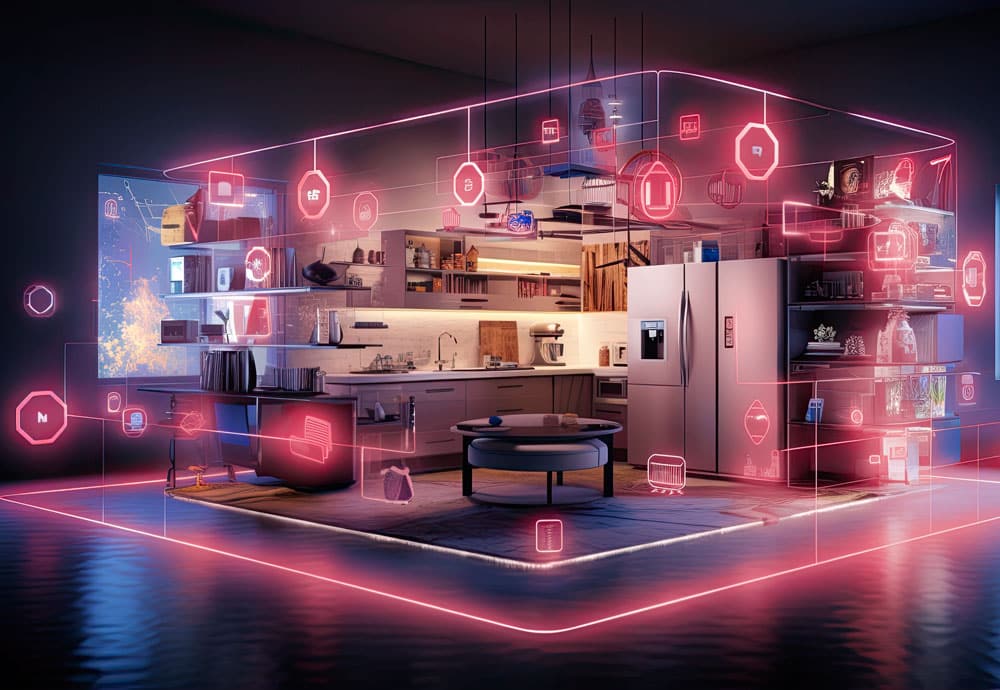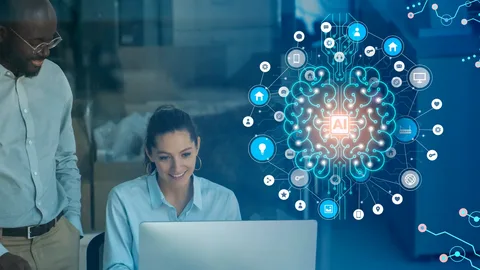AI-Powered Tools Transforming Daily Life in 2026
Introduction
Artificial intelligence has moved from being a futuristic concept to becoming a driving force behind everyday life. By 2026, AI-powered tools are no longer confined to specialized industries—they have become part of our homes, workplaces, healthcare, and entertainment. These tools are designed to make life smarter, more efficient, and more personalized. From managing household chores to revolutionizing medical treatments, AI is influencing how people interact with technology and with each other. This article explores how AI-powered tools are transforming daily life in 2026 and shaping the way society functions.
Smarter Homes and Connected Living
One of the most visible impacts of AI in 2026 is the rise of smarter homes. Intelligent assistants integrated into home devices now learn the routines of residents and adjust settings automatically. AI-powered thermostats optimize energy use based on patterns of occupancy, while smart lighting systems adjust brightness and colors according to moods or activities. Security systems with AI-enhanced cameras recognize family members, alert homeowners to unusual activity, and even communicate with local authorities if necessary. Household chores have also been revolutionized with robotic cleaning devices and AI-powered kitchen appliances capable of preparing personalized meals. Living spaces are becoming not just connected, but adaptive, learning to anticipate the needs of their occupants.

Personalized Healthcare and Wellness
Healthcare in 2026 is profoundly shaped by AI-powered tools that provide real-time health monitoring and personalized treatment plans. Wearable devices continuously track vital signs, blood sugar levels, sleep cycles, and more, alerting individuals and healthcare providers to any anomalies. AI diagnostic systems interpret complex medical images with precision, supporting doctors in detecting conditions at earlier stages. Personalized medicine has advanced significantly, with AI analyzing genetic data to create treatments tailored to each individual’s biology. Virtual health assistants now guide patients in managing medications, scheduling appointments, and maintaining healthier lifestyles. These AI tools are not just improving medical accuracy but also making healthcare more accessible and preventive, ultimately enhancing quality of life.
Redefining Work and Productivity
Workplaces in 2026 have been redefined by AI-powered productivity tools that streamline tasks, support decision-making, and enable greater collaboration. Intelligent scheduling assistants manage calendars, automatically prioritizing tasks and arranging meetings based on urgency and availability. AI-powered writing and research tools assist professionals in drafting reports, analyzing data, and generating insights at record speed. In creative fields, AI supports brainstorming by generating design prototypes, video edits, or marketing content tailored to audience preferences. Remote work is further enhanced by AI-driven collaboration platforms that simulate real-world office interactions in virtual spaces. These advancements allow workers to focus on higher-level problem-solving while repetitive or time-consuming tasks are automated, boosting efficiency and reducing stress.
Transforming Education and Learning
Education in 2026 has undergone a remarkable transformation with AI playing a central role in teaching and learning. Intelligent tutoring systems adapt lessons to individual learning styles, offering personalized feedback and pacing. Students receive interactive, AI-guided lessons that adjust to their strengths and weaknesses in real time. Virtual classrooms powered by AI create immersive learning environments where students can explore history, science, or art through simulations that feel like real-life experiences. Teachers benefit from AI tools that assist in grading, curriculum design, and tracking student progress with detailed analytics. Education is no longer limited by geography or resources, as AI-powered platforms make high-quality learning accessible globally, closing gaps in opportunity and fostering lifelong learning.
Entertainment and Media Experiences
AI-powered tools are also transforming how people consume and create entertainment in 2026. Streaming platforms use advanced AI to recommend personalized content based on mood, preferences, and even biometric data gathered from wearables. Interactive movies and games adapt storylines dynamically, creating unique experiences for every individual. AI-generated music and art have become mainstream, offering creators the ability to collaborate with intelligent systems to produce innovative works. Social media platforms leverage AI to filter content, detect harmful posts, and enhance user engagement with tailored feeds. The entertainment landscape is no longer one-size-fits-all but instead evolves with the unique tastes and behaviors of each individual, making leisure activities more immersive and meaningful.
Mobility and Transportation Made Smarter
Transportation in 2026 is safer and more efficient thanks to AI-driven innovations. Autonomous vehicles are no longer experimental but widely available, relying on AI to navigate complex traffic conditions with minimal human input. Public transportation systems use AI to optimize routes, reduce congestion, and ensure timely service. Ride-sharing platforms employ intelligent algorithms to match passengers efficiently and reduce carbon emissions. AI-powered traffic management systems monitor city roads in real time, adjusting signals to maintain smooth flow and prevent accidents. For individuals, AI assistants plan trips, recommend sustainable travel options, and even anticipate maintenance needs for personal vehicles. Daily mobility has become faster, more affordable, and environmentally conscious, reshaping how people move from place to place.
Financial Management and Smart Spending
AI-powered tools are also revolutionizing personal finance and money management in 2026. Digital financial assistants track spending habits, create customized budgets, and provide real-time recommendations to save money. Banks and fintech platforms use AI to detect fraud instantly, protecting consumers from scams. Investment tools analyze global market trends and provide tailored strategies for individual investors, making financial growth accessible to everyone, not just experts. Loan approvals and credit scoring have become faster and more accurate with AI assessing risk in real time. For consumers, these advancements mean greater control over their finances and more opportunities to build wealth with confidence. AI has made financial literacy and smart decision-making part of everyday life.
Enhancing Safety and Security
By 2026, AI plays a critical role in ensuring safety and security both online and offline. In the digital world, AI-driven cybersecurity tools detect suspicious activity, prevent hacking attempts, and safeguard personal data. Facial recognition and biometric systems supported by AI secure physical spaces, from homes and workplaces to airports and public events. Emergency response systems now rely on AI to predict disasters, coordinate resources, and guide rescue teams with greater efficiency. Law enforcement agencies use AI tools to analyze crime patterns, enabling more proactive approaches to public safety. On a personal level, AI-enhanced safety apps help individuals stay protected by offering real-time alerts about environmental hazards or unsafe areas. These innovations have made societies safer and more resilient.
Conclusion
Daily life in 2026 is undeniably shaped by AI-powered tools that touch nearly every aspect of human existence. From smarter homes and personalized healthcare to advanced education, entertainment, and financial management, artificial intelligence is making the world more efficient, secure, and tailored to individual needs. Transportation systems are safer, workplaces more productive, and leisure activities more immersive. At the same time, AI has become a vital force in ensuring safety and environmental responsibility. While challenges around ethics and privacy remain, the benefits of AI in 2026 highlight its role as a transformative technology that is redefining how people live, work, and interact. The future is no longer just digital—it is intelligent, adaptive, and deeply integrated into daily life.



